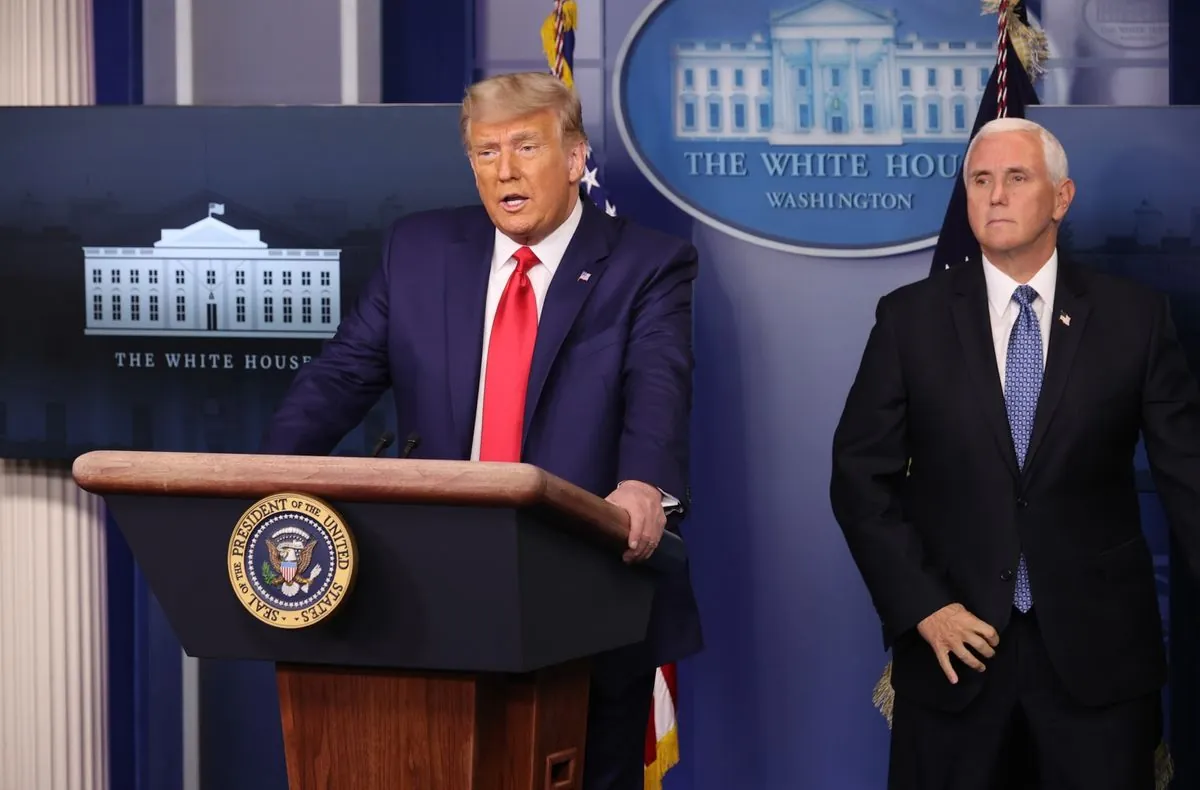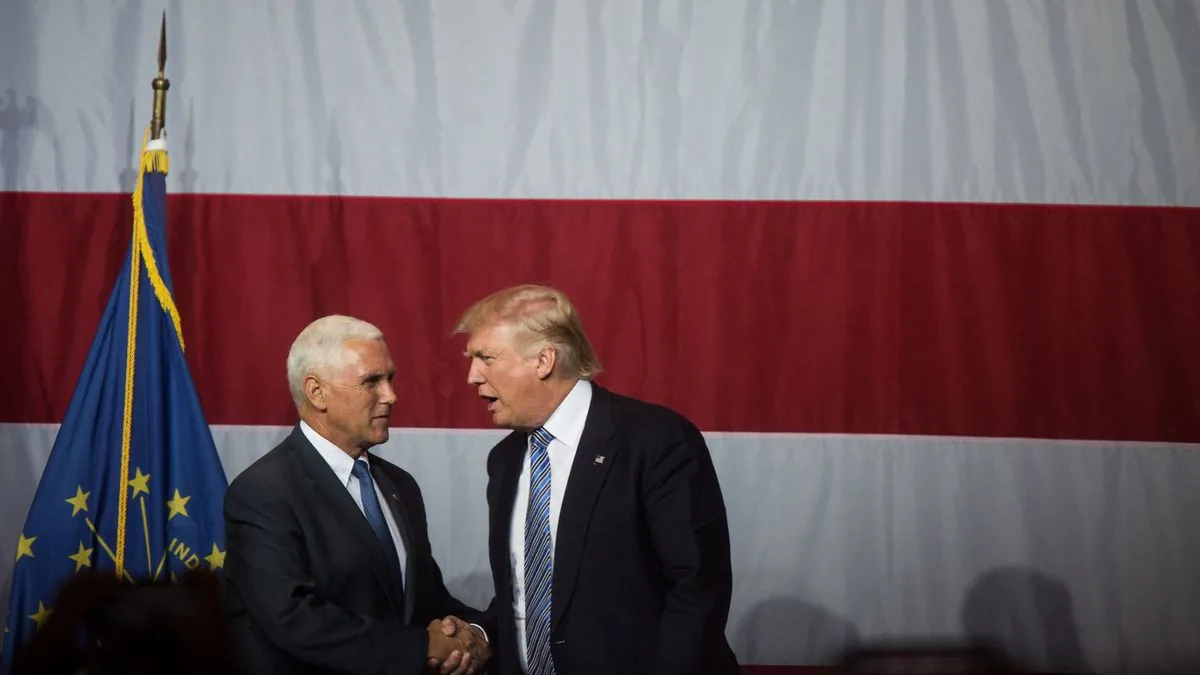Trump-Pence Conversations: A Legal Battleground in Election Case
Legal experts debate the admissibility of Trump-Pence discussions in the federal election interference case. The outcome could reshape presidential immunity and impact future administrations.

The federal election interference case against Donald Trump has entered a new phase of legal complexity, centering on conversations between the former president and his vice president, Mike Pence. These discussions, which allegedly occurred in the aftermath of the 2020 election, have become a focal point in determining the scope of presidential immunity.
In the summer of 2024, the Supreme Court expanded the definition of presidential immunity, generally shielding presidents from criminal prosecution for "official acts" while leaving unofficial acts open to legal scrutiny. This ruling has set the stage for a critical debate in the case against Trump.
Trump's legal team argues that conversations between a president and vice president should be considered official acts and thus immune from prosecution. They contend that if these discussions are excluded, the indictment against Trump would be significantly weakened.
"If Your Honor decides that that is immune, then the whole indictment craters."
Special counsel Jack Smith faces a deadline of September 28, 2024, to present his legal reasoning to Judge Tanya S. Chutkan on why the revised indictment adheres to the Supreme Court's ruling. This filing is expected to explain why Trump's conversations with Pence are not protected under presidential immunity.
The case highlights the intricate relationship between the president and vice president, as defined by the Constitution. The Vice President serves as President of the Senate, a role established by the 12th Amendment. This dual function complicates the legal interpretation of their interactions.
Legal experts point out that while a president's duties include communicating with the vice president, they do not encompass discussing the certification of election results. The Electoral Count Act of 1887 governs this process, separate from executive branch functions.
The indictment alleges multiple instances of Trump pressuring Pence to overturn the 2020 election results. These include a Christmas Day phone call and a New Year's Day conversation where Trump allegedly berated Pence for being "too honest."

The case also involves allegations of Trump attempting to influence state officials and create a fake elector scheme. These actions, along with Trump's public statements about the election, form a significant part of the prosecution's case.
The concept of executive privilege, established in cases like United States v. Nixon (1974), may play a role in determining what communications are protected. However, the Presidential Records Act of 1978 ensures that certain presidential records are preserved and potentially accessible.
The outcome of this case could have far-reaching implications for future administrations. It may redefine the boundaries of presidential immunity and impact how presidents and vice presidents communicate during times of political crisis.
As the legal battle unfolds, it's worth noting that the Presidential Immunity from Judicial Direction principle, established in Mississippi v. Johnson (1867), has historically provided broad protections for presidential actions. However, cases like Clinton v. Jones (1997) have shown that sitting presidents can be subject to civil lawsuits.
The resolution of this case may not only determine Trump's legal fate but also shape the landscape of presidential power and accountability for years to come. As the courts grapple with these complex issues, the balance between executive authority and legal accountability hangs in the balance.


































